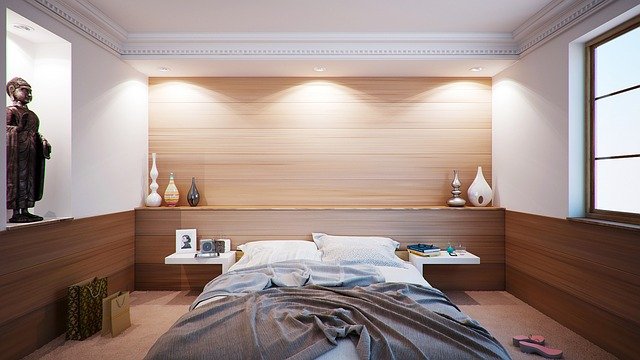
How People Sleep, All Around the World
Sleep is something all of us have in common. The benefits of sleep are enormous and without a good night’s sleep, your day is likely to be starting on the wrong foot. Read on to learn more about how various cultures sleep, all around the world. Enjoy!
Various Cultures Sleep Differently
As you’ll see in the following list of countries, many people sleep differently; depending on where they live in the world. Here are some of the most fascinating differences between various cultures.
Spain
Spaniards value sleep more than most other cultures. Have you ever felt that afternoon lull and thought to yourself “A nap would be awesome right now!”, the people of Spain agree. The “siesta” is a somewhat common practice many adhere to around 2-4pm to recharge and take on the rest of the day. While it’s certainly not as popular as it used to be, it’s still very much a part of the culture. With an afternoon nap comes a much later bedtime than most other countries.
Italy
Italians have a similar mid-afternoon nap time by the name of “riposo”. These naps are taken as the typical time most Italians wake up is around sunrise, so it makes sense as to why they need a quick rest around 2pm or so. They’re also fans of their coffees, so whether it’s a riposo or a cappuccino, Italians enjoy it.
Norway
With Norway experiencing some of the longest days of the year once spring and early summer arrive, you may find your neighbor mowing their lawn around midnight, going for a hike at 1am, or simply out and about socializing with friends and family when the rest of us are fast asleep. This all makes sense when you realize the sun doesn’t really set during peak summer hours. It simply provides some ambient light and then rises again during the month of June. Some love this part of summer and take advantage of the very long summer days in Norway.
Finland
New moms in Finland receive a “baby box” which provides a number of maternity gifts and a place for the baby to sleep when they first arrive home. From there, they’re transferred to their crib, but it’s a nice gesture by the Finnish government and it’s something most Finns appreciate.
Iceland
In Iceland, many mothers will allow their babies to sleep outdoors for nap time. Due to Iceland’s very low crime rate, many mothers are not concerned about the safety factor we may worry about in other countries. Icelandic parents believe in the benefits of fresh air and the soothing qualities of a nice breeze. Surrounding children in nature can do a lot of good for healthy development.
Germany
German sleepers will typically have their own duvet cover so as not to disturb their partner should they decide to use more of the covers. This concept is known as a daunendecke. It’s all about keeping the peace in the bedroom and it seems to have worked out so far for them.
Guatemala
Guatemala citizens like to palace “worry dolls’ underneath their pillow if they’re experiencing a stressful day or week. You whisper your worries to the dolls and place them underneath your pillow before you fall asleep. They will then absorb your worries and allow you to have a good night’s sleep. When you wake up in the morning, you’re supposed to rub the worry dolls’ bellies to give them comfort after carrying your worries throughout the night.
Mexico
Prayer is a large part of pre-sleep rituals throughout Mexico. 83% of the population of Mexico is Catholic, so it makes sense they’d incorporate prayer before they rest their eyes for the night. Prayer and mediation has been proven to relieve stress, and with this stress relief, you may find yourself sleeping better.
China
Feng Shui plays a large role in how the bedroom is set up in China. The bed placement is crucial for a good life and there are many Feng Shui experts who will suggest optimal placement when moving into a new house or apartment. Additionally, many Chinese medicine practitioners say the ideal bedtime for most people is 10:30pm, as they say the human body begins to repair from the day’s stressors around 11pm.
Japan
Futons placed on tatami mats are typically how the Japanese sleep every night. The mats are able to be rolled out onto the floor and then rolled back up once they awaken in the morning. The Japanese population as a whole sleeps the least with around 6.3 hours of sleep on average per night. This is believed to be due to their work culture causing long hours at the office and on the job.
India
Many Indians believe the soul leaves the body each night in search for water, so they’ll keep a glass of water at their bedside to prevent a thirsty soul. This is probably a good idea for all of us, as sometimes we may wake up very thirsty in the middle of the night due to dehydration from night sweats, bad dreams, or a stuffy room.
Vietnam
Nap time is a part of both children and adults’ daily routine. Naps are taken at school and work where you’ll typically see both children and adults bring a small pillow to take a quick nap in the afternoon when they need to rejuvenate their energy for the rest of their day.
Choosing Neurosurgery & Spine Consultants for Neck, Back, & Spine Pain Relief
Contact us using the form below if you’re experiencing neck, back, or spine pain and we’ll be sure to have you seen by one of our awesome specialists as soon as possible!
DISCLAIMER: No content on this site, regardless of date, should ever be used as a substitute for direct medical advice from your doctor or other qualified clinician.